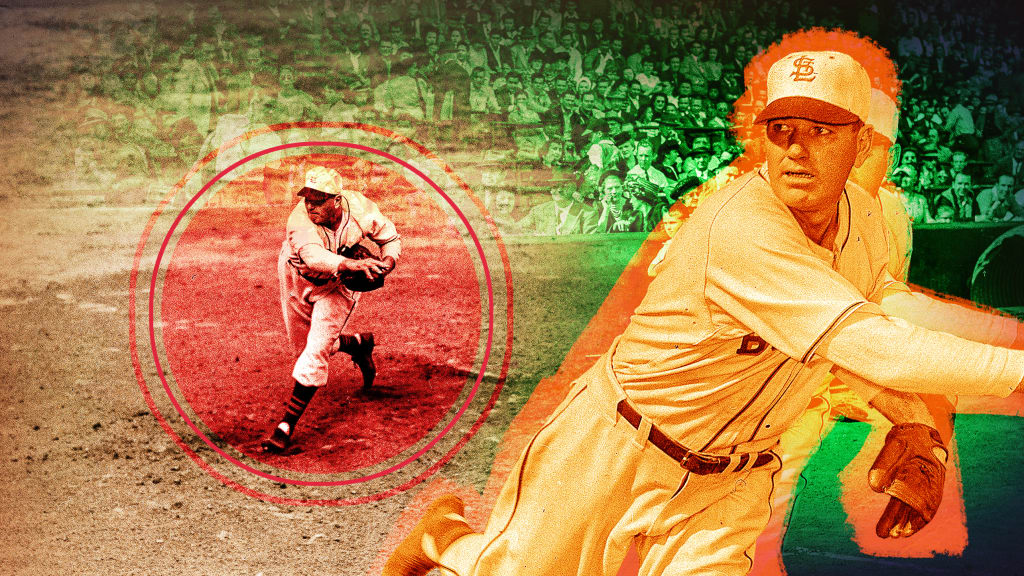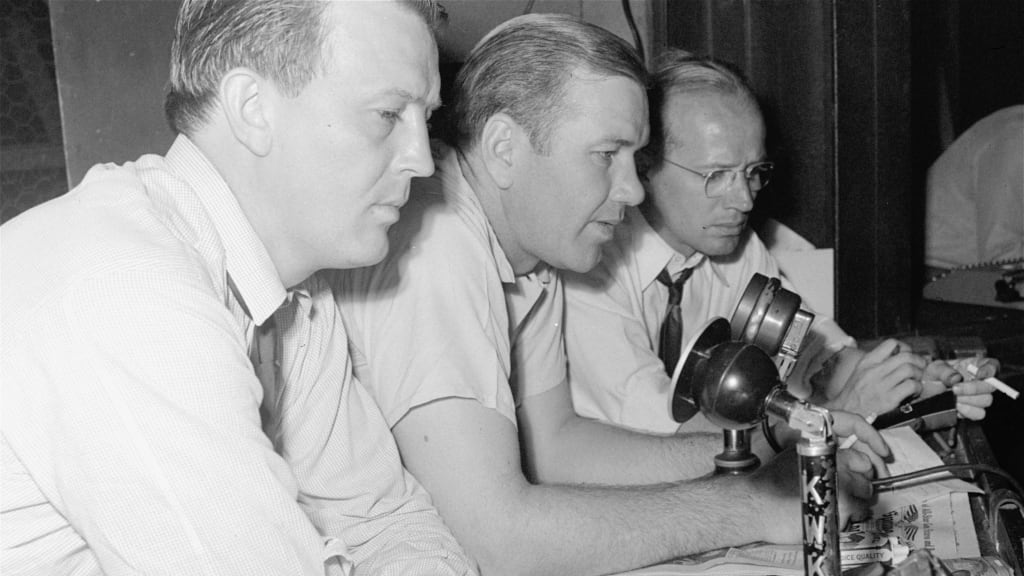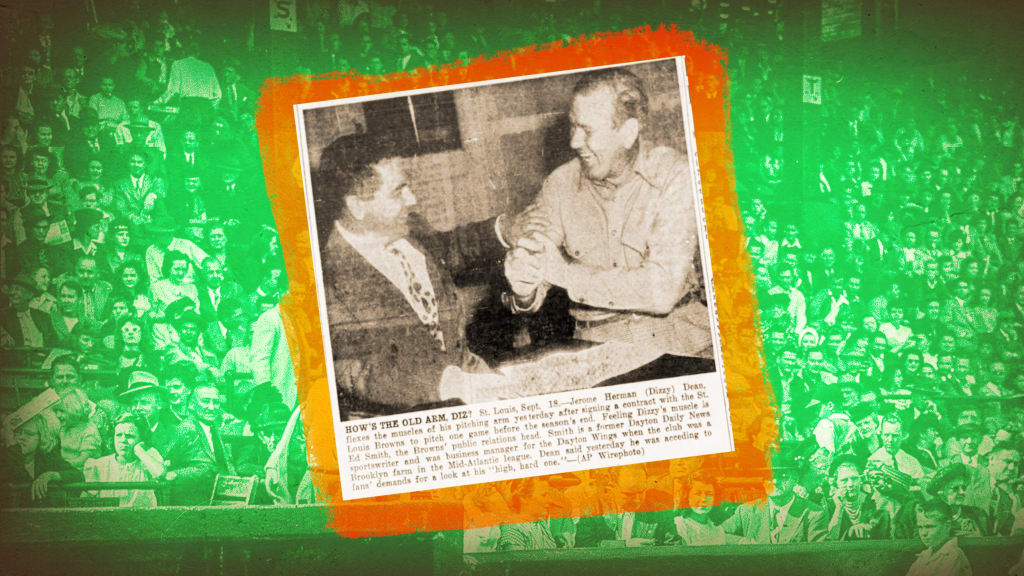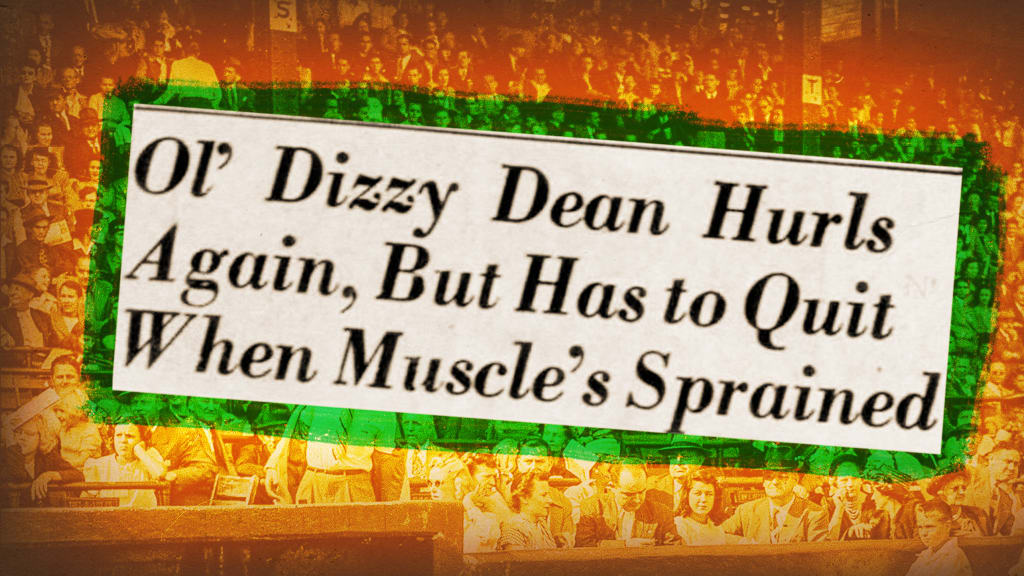
A version of this story originally ran in May 2020.
Forget Jordan returning from retirement -- twice. Ignore Andy Pettite¡¯s return to the Bronx. And don¡¯t even think about Gronk¡¯s reunion with Tom Brady.
Dizzy Dean had the chance to be the greatest to ever come back from retirement. It has less to do with the fact that he did it six years after he retired -- after all, he was still only 37 -- but how he managed to make his return to the mound.
Few players in baseball history can match Diz, on or off the field. The Hall of Famer absolutely decimated offenses when he and his brother Paul led the Gashouse Gang Cardinals teams of the 1930s. He won 58 games in 1934-35 and led the league in strikeouts for four consecutive seasons. He racked up complete games at a rate few could ever match (he led the league in that category three times) -- and when he didn¡¯t start, the Cardinals were sure to call on him to close games out.
As good as his right arm was, his mouth was even more famous.
He regularly bragged about his abilities on the field, claiming that he and his brother Paul could almost single-handedly deliver a World Series championship to the Cardinals. Of course, he also famously said, ¡°It ain¡¯t braggin¡¯ if you can back it up," and the duo proved that true in the team's 1934 World Series victory.
The next year, during a Spring Training game against the Giants ¨C the team that had lost five straight to hand St. Louis the NL pennant -- Dean walked by their dugout, asking if anyone could cash a $5,300 check (the exact amount of a World Series bonus).
¡°I wanna thank you fellas for collapsin¡¯ so we could make all that dough,¡± he said.
Naturally, all that talking set him up to become the ideal broadcaster.
After retiring because of arm pain in 1941, he soon became the voice of the Cardinals and Browns alongside Johnny O¡¯Hara. That continued for a few years, but in 1947, he started calling the Browns exclusively.
That may not have been great for the Brownies. They were -- to put it lightly -- terrible. They went 59-95 that year -- the worst in the Majors. They scored the third-fewest runs, and gave up the fourth-most. They drew just over 4,000 fans a game, the least in the league by far. That gave Dean plenty to complain about on the air, using his own unique of way of describing things.
¡°Doggone it, brother, get the ball over the plate,¡± Dean said on one broadcast. ¡°Don¡¯t walk that guy. Doggone it, I swear I could do better than a lot of those guys pitching these days.¡±

The fans loved Dean's boast, and started sending countless telegrams to the old hurler saying that he should do exactly that: Get on the field and show the St. Louis pitchers how it's done.
The Browns, always desperate for something to entice fans to come to the park, decided it was a good idea and signed him to a contract on Sept. 18. (For once, Dean was happy with the amount. ¡°It¡¯s the best contract I ever got,¡± Dean said, ¡°since it¡¯s the first one I didn¡¯t send back for more money.¡±)
Dean and Smith made sure the cameras were around for the signing, too:

Though the team¡¯s publicity director Ed Smith said that Dean would pitch at the manager¡¯s discretion, skipper Herald ¡°Muddy¡± Ruel seemed less enthused. On the same day that Dean¡¯s contract was inked, Ruel said he had heard nothing about it other than it seemed like the fans were excited. When asked if Dean would pitch, he offered a simple, ¡°No comment.¡±
But, with St. Louis assured of its spot in the cellar and the White Sox set to finish not much better, Ruel acquiesced. On the final day of the season -- Sept. 28, 1947 -- Dean took the mound. The plan worked, and 15,910 people paid to see the all-time great play one more time -- the third-most that came to Sportsman¡¯s Park that year.
Of course, not everyone was as enthused with his return. One of the Dayton Daily News¡¯ printers, Carroll Scheibenzuber, said, ¡°Sure, the guy hasn¡¯t thrown a ball in seven years, but as a radio broadcaster, he¡¯s certainly thrown the bull.¡±
Perhaps Ruel should have let him pitch sooner. Though he likely had a little less zip on his fastball, he pitched like he played for the other St. Louis team. Dean threw four shutout innings, giving up three hits (one of the infield variety) and, best of all, no runs.
Diz, in classic fashion, also tried to hit with a blue striped bat before the umpire disallowed it, and then proceeded to smack a base hit with a regular piece of pine.
Of course, he would get this comeuppance, leaving the game with -- you guessed it -- a dreaded injury. It wasn¡¯t even his old, busted pitching arm that got him in trouble. Just like every guy in his 30s playing a pickup game, Dean pulled a muscle while running to first base.
The headlines summed it succinctly:

Ever the showman, Dean didn¡¯t let that stop him from entertaining the crowd. When he was called out at second base later in the inning, Dean ¡°pretended that he hadn¡¯t heard the decision,¡± forcing an umpire to come out and convince him to leave the field. When he got back to the bench, he and Johnny Perkins fanned each other with white towels.
Sadly, that injury called for the premature end to Dean¡¯s big league comeback tour, though, sure enough, the Browns¡¯ bullpen did what Dean had been complaining about all season long: They gave up five runs in the top of the ninth to lose the game.
Hey, as Dean always said, it¡¯s not bragging if you can back it up, and he did back it up. At least for a few innings.

